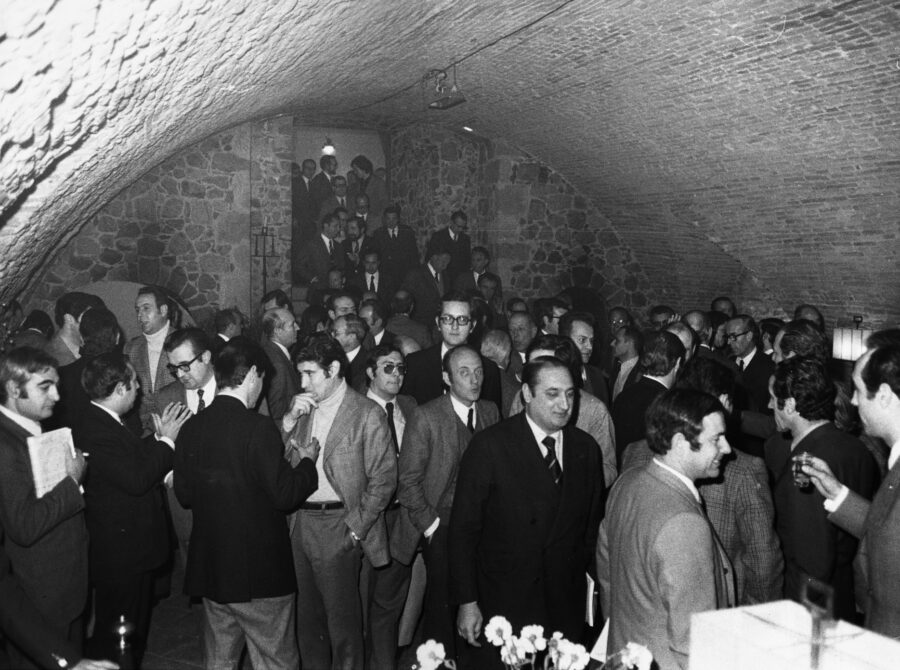The origin of the Cercle was established at the Club Comodín in 1951. Within a typical university environment, a chess club encouraged the meeting of a group of young Barcelona businessmen. In the early 1950’s, the Club became an open and unique debate space in the closed Spain of those years.
The intellectual influence that Professor Jaume Vicens Vives exerted on a group of those young entrepreneurs at the Club Comodín was decisive in the founding of the Cercle. In addition, Vicens Vives introduced them to young university professors such as Fabián Estapé, and with state senior management, some of whom were residing in Madrid. Renewing the autocratic and protectionist economic political thought of that time, they contributed to what would be the stabilisation, economic liberalisation and commercial opening plan of 1959.
Therefore, since the beginning, this combination of people from the world of business, academia and administration who longed for an open economy in the framework of a democratic society made the Cercle a unique place of dialogue and freedom.
One of the manifestations of that spirit of dialogue was the Costa Brava Meetings, now called Cercle d'Economia Meetings, which are held annually in Sitges. Initiated in 1961, they became a unique meeting space in Spain, bringing together people from these three areas of the Cercle. With the arrival of democracy, many people were invited to these meetings, and also Cercle members, who, from different political positions assumed very important political responsibilities. It is precisely this diversity of ideological and political sensitivities existing at the core of the Cercle that still defines the institution today, and the attribute that best ensures its partisan independence.
From that very active role in the process of stabilisation and liberalisation of 1959, the Cercle has continued to promote and support initiatives and proposals that have contributed to the modernisation of the economy and society, and to the consolidation of democracy. The spirit of dialogue and social innovation allowed the Cercle to gain credibility in Spain since the 1960s. These values have been deeply rooted in the organisation’s personality and life.
The trajectory of the Cercle since it’s foundation is widely found in the books “Circulo de Economia 1958-1983. A trajectory of modernisation and coexistence”, edited to celebrate the 25th anniversary of the organisation, and “The long road to Europe. 50 years of the Cercle d’Economia” that captures the life of the organisation until 2008.
